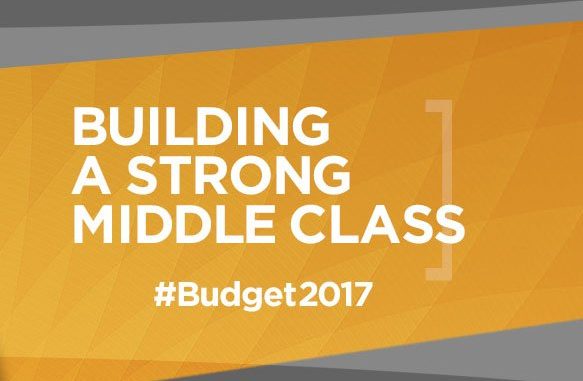
Budget 2017 is the next step in the Government’s long-term plan to create jobs and strengthen the middle class. Canada is home to a well-educated and highly skilled workforce, but as the demands of the workplace change, so too must the education and skills that workers bring to their jobs. The changes in the economy—both here at home and around the world—present incredible opportunities for the middle class and those working hard to join it.
Finance Minister Bill Morneau today tabled in the House of Commons the Budget Implementation Act, 2017, No. 1 (BIA 1), which implements measures announced in Budget 2017, Building a Strong Middle Class. Today’s legislation is a significant step forward in the Government’s ongoing plan to equip Canadians with the skills and tools they need to succeed in the economy of tomorrow.
BIA 1 will also position Canada at the leading edge of a changing economy by helping to ensure that Canadians are able to access the jobs of the future, strengthen Canada’s publicly funded universal health care system to meet the needs of Canadian families, keep Canada on the path to building a fairer, more inclusive country that reflects the priorities of Canadians, and much more.
As an immediate first step, BIA 1 would:
- Provide funding to provinces and territories for home care and mental health services in 2017–18 as an immediate down payment to provinces and territories that have accepted the federal offer of $11 billion over 10 years.
- Expand Employment Insurance (EI) benefits to offer more flexibility for families with different needs by allowing parents to choose to receive EI parental benefits over an extended period of up to 18 months, and allowing women to claim EI maternity benefits up to 12 weeks before their due date, if they so choose.
- Offer greater support for Canada’s veterans and their families by ensuring that the Government delivers the programs and services our veterans—and their families—need for a seamless and successful transition from military to civilian life, including the creation of a new Education and Training Benefit, and greater assistance for the families of disabled veterans.
- Establish the Canada Infrastructure Bank, an arm’s-length organization that will work with provincial, territorial, municipal, Indigenous and private sector investment partners to transform the way infrastructure is planned, funded and delivered in Canada. The Canada Infrastructure Bank will be responsible for investing at least $35 billion in revenue-generating infrastructure projects that are in the public interest, and attracting private sector capital to those projects so that more infrastructure can be built across Canada.
- Simplify the existing system of tax relief for caregivers by replacing three existing tax credits with the single Canada Caregiver Credit. This new credit will better support those who need it most, apply to caregivers whether or not they live with their family member, and help families with caregiving responsibilities.
- Expand the range of courses eligible for the Tuition Tax Credit to include occupational skills courses that are undertaken at a post-secondary institution in Canada. Also, the full amount of bursaries received for such courses would qualify for the scholarship exemption (where conditions are otherwise met).
- Support a Pan-Canadian Artificial Intelligence Strategy to retain and attract top academic talent, and to increase the number of post-graduate trainees and researchers studying artificial intelligence and deep learning.




Leave a Reply